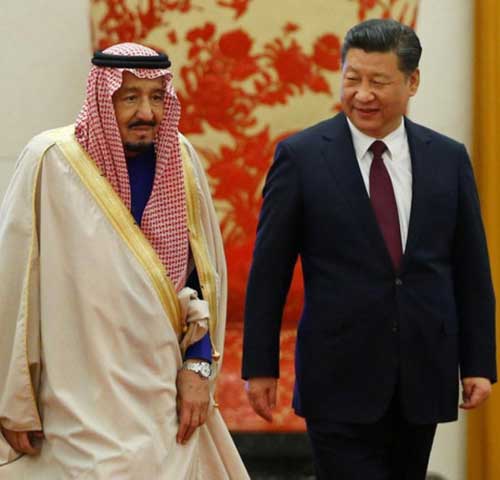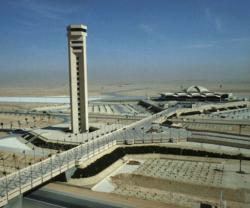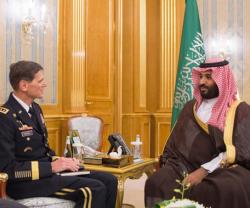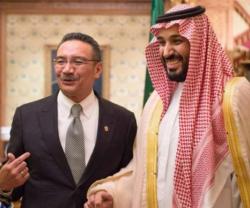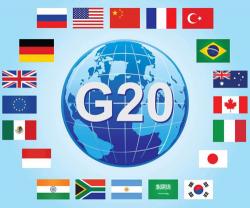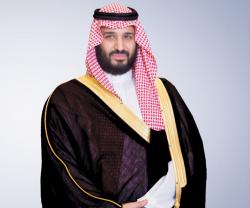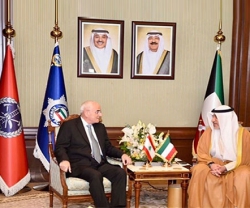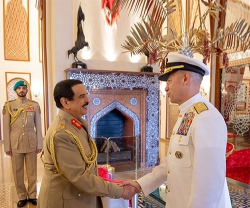China and Saudi Arabia on Thursday signed Memorandums of Understanding and Letters of Intent potentially worth about $65 billion during Saudi King Salman’s visit to Beijing, a senior Chinese diplomat said.
Deputy Chinese Foreign Minister Zhang Ming said the agreements involved investment, energy, space and other areas, but did not give details. King Salman, who has overseen the launch of an ambitious economic reform plan since his accession two years ago, is on a month-long Asian tour that has included stops in Indonesia, Malaysia, Brunei and Japan. King Salman is next due to visit the Indian Ocean island nation of the Maldives.
The visits to countries that are some of world’s fastest growing importers of Saudi oil aim to promote investment opportunities in the Kingdom, including the sale of a stake in its giant state firm Saudi Aramco.
Chinese President Xi Jinping told Salman his visit showed the importance he attached to relations with China. “This visit will push forward and continue to improve the quality of our relations and bear new fruit,” Xi said.
A visit to Beijing by King Salman is highlighting China’s budding engagement with the Middle East, which provides a crucial source of energy to fuel its economy and represents a key component in Beijing’s bid to link China to Europe through infrastructure development.
In opening remarks at their meeting, Xi said he looked forward to discussing projects under development, and said results so far “have surpassed our expectations.”
Security ties between the two countries have also grown significantly, with the Saudi air force deploying Chinese unmanned attack drones and the two militaries holding joint counter-terrorism exercises in western China.
Chinese navy vessels have also visited the Saudi port of Jeddah as part of increasingly active maneuvers in the Gulf of Aden. Chinese officials say their overriding security interest in the Middle East is to prevent ethnic Uighur fighters who have left western China and joined militant groups in Syria and Iraq from returning to strike at China.
Xi has signaled his desire to play a bigger role in the region as part of China’s quest for resources, markets and increased global influence on a par with its economic heft. In a major speech before the Arab League in Cairo last year, Xi indirectly alluded to how the US presence had waned and how China hoped to present an alternative.
“Instead of looking for a proxy in the Middle East, we promote peace talks. Instead of attempting to fill the vacuum, we build a cooperative partnership network for win-win outcomes,” Xi said.

